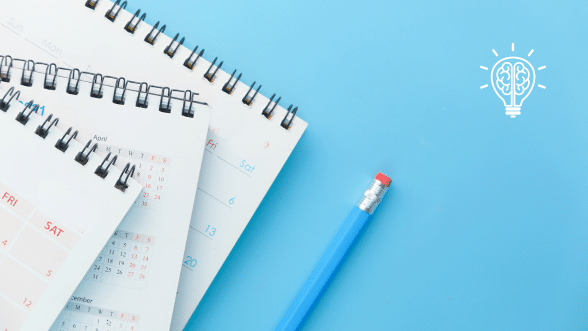
If you live with attention deficit hyperactivity disorder (ADHD), you may struggle with executive functions like time management and decision-making. This can create hurdles when it comes to your professional life, especially if you’re a young professional working in an office or other in-person environment where distractions abound. The good news is that there are practical steps for managing ADHD at work.
What ADHD at Work Can Look Like
Although people without ADHD can struggle with executive functions, executive function disorder is a common occurrence among those with ADHD. In the workplace, executive function disorder can manifest as:
- Lack of focus
- Tardiness
- Problem-solving difficulties
- Inability to make decisions
- Missed deadlines
- Lack of motivation
- Inability to plan or prioritize tasks
- Difficulty regulating emotions
What many people find surprising and particularly challenging is that they can experience some of these struggles without having them affect their work. When there’s a gap between visible and invisible symptoms of ADHD, managers and mentors might not even realize an employee needs support. But that doesn’t mean you have to muddle through it on your own.
Tips for Managing ADHD at Work
Although executive function disorder can create challenges at work—for example, by making it hard to meet deadlines—your ADHD doesn’t have to stand in the way of career success. Try these tips to keep your professional development on track.
1. Establish a Routine
Having a set routine can help you concentrate on the job. Even if you have a flexible work schedule, try to create regularity for yourself by starting and stopping work at the same time every day and scheduling a set lunch break. Frequent breaks can also help you avoid getting overwhelmed and maintain focus.
2. Eliminate Distractions
One challenge of in-person workplaces is the distractions. Create a clutter-free workspace, invest in noise-canceling headphones, and block off time in your calendar for focusing on predefined tasks. If you’re in an open office space, you might also develop a system to alert your coworkers when you’re in the zone and shouldn’t be interrupted—like putting a colorful sticky note on your computer.
3. Write Tasks Down
To manage time and prioritize tasks, create a handwritten to-do list every day before you start working. Yes, digital planners and calendars are convenient. However, studies suggest that physically writing something down improves your ability to remember it later.
You can also physically check off items on your to-do list as you complete them, which can give you added motivation. Taking handwritten notes in meetings can also help you focus.
4. Get Moving
When you have a break, whether it’s a quick coffee run or a lunch meeting, try to work in some physical activity. Going for a walk can help to activate your attention, making it easier to focus when you sit back down at your desk. Other activities that can help prime your executive functioning include doing a crossword puzzle or listening to music. A small treat after you complete a to-do list item can also help you stay motivated.
5. Be Intentional With Communication
When you have ADHD, you may struggle to stay focused in conversations or meetings, especially in larger groups. When possible, schedule one-on-one meetings to avoid distractions. When it comes to written communications, beware of email, which can make you easily distracted by demanding a reactive response. Set aside a window for checking emails every day and stick to it.
6. Recognize the Positives
Research suggests that people with ADHD may be more creative, for instance, and prone to more out-of-the-box thinking (and problem-solving). Individuals with ADHD may also have periods of hyperfocus and experience great enthusiasm and energy. Thinking of these traits as assets at work can help you leverage them for professional success.
7. Seek Support
If you’re comfortable sharing your ADHD with others, it can help to line up an accountability buddy at work. For example, you can ask that they nudge you in meetings if you look like you’re zoning out. Think about whether you feel comfortable talking with your manager about possible accommodations, like permission to modify a workflow, wearing headphones or earplugs to reduce noise-related distractions, or extra coaching on prioritizing tasks and time management.
There is also professional help available to support individuals with ADHD who struggle with executive functions. A coach who works with young adults can help you translate skills you may have learned in school to the workplace. If this is your first time receiving this type of support, the coach will get to understand your baseline and create a personalized development plan.




